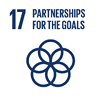This project analyses administrative tax data to provide knowledge for better policymaking and inclusive development in four partner countries. Using administrative data for policy analysis and research offers extensive possibilities for supporting the development of well-performing tax systems in the Global South.
Countries in the Global South have increased their tax revenue in recent decades, but overall revenues have often remained too low to provide crucially important public goods. Well-planned, efficient and equitable taxation helps to provide social services, pursue economic growth, reduce inequalities, and combat poverty.
This research project investigates how countries could develop their tax systems by improving compliance and mitigating the potential harmful effects of taxation on enterprise growth and job creation. Research projects are motivated by the need for evidence to create and improve tax policymaking.
The project aims to develop the institutional and individual capacity of national tax administrators through technical cooperation, research co-creation, and by building national and international communities of practice around the use of administrative tax data in the Global South. In many instances the best way to study tax policy changes requires tax administrative microdata.
In 2022 the project expanded public, secure access to tax data in Uganda through a physical data lab facility. More information about the URA lab and requests to use the data can be found here. The project is extending a similar data lab blueprint to Zambia, which is expected to be operational from 2025 onwards.
The research outputs of the project are intended to assist policy makers as they develop and implement tax policy to improve tax collection and ultimately development prospects in their countries. The project ensures research and findings are broadly disseminated to policymakers creating the possibilities for change.
Key questions
This project will address the following topics and more:
- How can tax compliance be improved to reduce tax gaps and achieve greater potential revenue?
- How has the digitalization of VAT and administration of VAT refunds impacted firm growth and behaviour?
- What is the role of tax audits in ensuring effective and efficient tax collection?
- How have tax and administration policy changes shifted tax revenue for small businesses?
Watch this space
All papers, events, briefs, blog posts, and opportunities to engage relating to the project will be available on this webpage.
This page is for phase 3. For information on the first phase of the project visit this page. For information on the second phase of the project visit this page. The ongoing collaboration in South Africa under the SA-TIED programme provided the inspiration for research using tax data and public access to tax data for research.
UN’s 2030 Agenda for Sustainable Development
Improving capacities for tax and other domestic revenue collection is a key target of SDG 17. In addition, SDG 16 is dedicated to the promotion of inclusive societies with effective and accountable institutions. Furthermore, tax capacity is closely linked to the ability of governments to offer better public services to end poverty (SDG 1), reduce inequalities (SDG 10), and ensure sustainable economic growth (SDG 8). Good governance in the area of tax and social protection is a key factor in efforts to improve women and girls’ living standards as they are more dependent on efficient public service delivery (SDG 5).

 Join the network
Join the network





